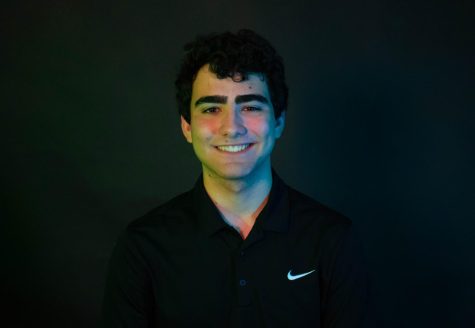When in school, students are encouraged to explore, to be curious. “There are no stupid questions,” the saying goes.
Except there are- at least, according to the lawmakers who have introduced over 137 bills nationwide to restrict discussions in classrooms and punish teachers who “push their own biases”. According to free speech organization PEN America, these topics include a short and inconclusive list of: slavery, race, religion, political affiliation, facism, antisemitism, free-market economies, gender, abortion, Black Lives Matter, pronouns, socialism, sexual orientation, January 6th, any “negative” depictions of America, and any other topic lawmakers deem sufficiently “controversial.”
If it sounds vague, that’s the point. Lawmakers and parents who say that they want politics out of our classroom don’t really mean that- they mean they want politics they disagree with out. Schools, including Trinity, have become a political battleground for politicians and parents, with teachers and students caught in the crossfire.
Most of the recent national outrage is founded on a base misunderstanding of what schools do. Schools, from middle school to university, are designed to present students with a variety of viewpoints and perspectives. They provide a safe space to explore these ideas, where students are encouraged to express their opinions. Teachers, in moderating and encouraging these debates, help make sure students’ views are respected and heard.
Besides, a 2016 study from the Journal of Curriculum Theorizing found that teachers disclosing their political beliefs has little influence on their students. In fact, the study found that most students, regardless of political beliefs, appreciated their teacher being involved- it meant the teacher was treating them as an adult who was able to understand differing opinions and personal bias. If you treat children as immature and impressionable, then that’s what they’ll be. The opposite is true as well.
“Teachers have a right to express their political opinions,” 8th grader Lucy Chong said, “to the extent where it’s not encroaching on their students and making their students feel bad about their own political opinions.”
Whether parents like it or not, their students are going to be exposed to politics, and have questions. If teachers are forbidden from discussing even objective facts about topics and discussions, this won’t make the students stop. It’ll just turn their sources from the classroom, where they can develop critical thinking and their own opinions, to the internet, where echo chambers and misinformation abound.
“Sharing and forcing are very different,” 8th grader and middle school history bowl captain Misha Choudry said. “So I think if they’re just sharing, it shouldn’t really matter.”
And when vague and poorly-written laws try to control this dynamic, most teachers avoid politics entirely. A recent EdWeek study found that while a majority of teachers refrained from talking about former President Trump’s factually incorrect claims of voter fraud, over a quarter avoided the topic not because they thought it was inappropriate, but because they feared complaints from parents.
Under two separate laws currently being debated in the Florida legislature- the Individual Freedoms Bill and Stop WOKE Act- parents would be able to sue if their child’s teacher used lessons that might cause “discomfort” to students. Teachers would also be unable to teach that any historical individual is “inherently racist, sexist, or oppressive.” Students would have to learn about the civil rights movement, the Holocaust, slavery, all while ignoring or obscuring the actual events.
“If we don’t teach what’s uncomfortable, we’re living in a bubble,” 8th grader and middle school student council president Nikhil Daniel said. “It’s going to be burst in the real world. So by learning about things that are uncomfortable, it’s better to learn in a safe school environment rather than going out in the real world and experiencing it.”
Some of these issues, raised by legislators and parents alike, are, for many, not political. Rainbows flags in classrooms are not political. Allowing students to pick their pronouns is not political. Calling these topics as such reduces identities into something that can be debated, regulated and removed.
On the issues that actually involve politics, teachers should never instruct students on how to feel, or whom to vote for. But accusing teachers of indoctrination when they’re just doing their job is an insult not just to them, but the students as well. Trinity is founded, above all else, on preparing students for college and for life. We cannot ignore politics as a part of that.
“Letting kids understand the views of both parties and letting them make their own decisions, and giving them sources to decide for themselves rather than their parents dictating their policy decisions of the party they support is good,” Daniel said. “Allowing teachers to support kids and give them the resources to understand the political party system will allow us as a society to progress and the children to actually have their own values and standpoints.”
Parents say that they are protecting their independent “family values” by controlling what is taught in the classroom. Teachers are a threat to those values, not because they are indoctrinating students, but because they are teaching them to think on their own. If students are able to form and articulate their own opinions, even when they may disagree with their parents, that’s not a failure of our education system. That’s a success.










